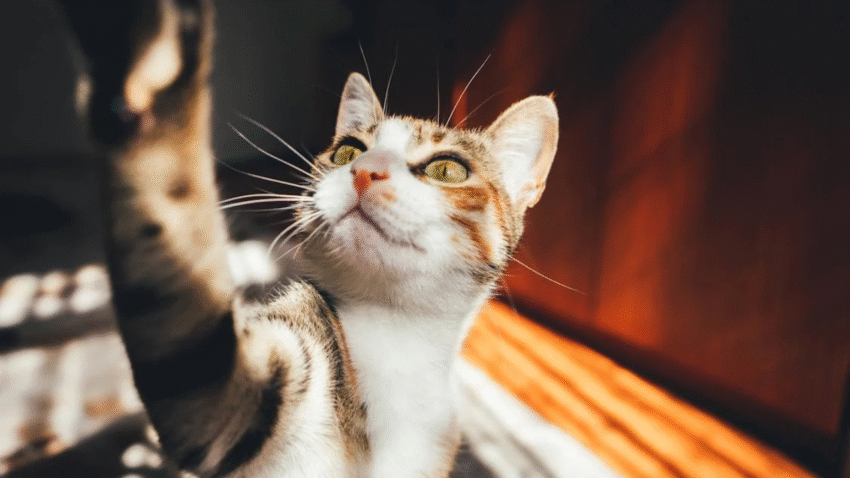Introduction
Worried your kitten might be feeling under the weather? Catching illness early is crucial for your kitten’s long-term health. In this guide, you’ll learn how to recognize early signs of illness in kittens and what to do when symptoms appear. From changes in behavior to subtle physical signs, being proactive can make all the difference.
Why Recognizing Illness Early Matters for Kittens
Kittens are more vulnerable to illness than adult cats due to their developing immune systems. Many serious conditions start with minor symptoms that are easy to overlook. Detecting problems early allows for faster treatment and better recovery outcomes.
Health awareness in the early weeks also helps you form a strong bond with your kitten. You’ll learn to read their body language and understand what’s normal versus what’s concerning — a vital skill for any pet owner.
Common illnesses that affect kittens include:
- Upper respiratory infections
- Intestinal parasites
- Feline panleukopenia
- Dehydration or malnutrition
- Congenital conditions
Knowing the warning signs can help you act fast and potentially save your kitten’s life.
Step-by-Step Guide to Spotting Illness
1. Monitor Eating and Drinking Habits
- Appetite changes: A sudden loss of appetite or refusal to eat may indicate a health issue.
- Excessive thirst or no interest in water: Either extreme could point to dehydration or a metabolic problem.
2. Watch for Digestive Issues
- Diarrhea: Soft or watery stool is a common sign of parasites, food intolerance, or infection.
- Vomiting: Occasional hairballs are normal, but repeated vomiting is not.
- Constipation: Straining in the litter box without results may signal a blockage or dehydration.
3. Check for Respiratory Symptoms
- Sneezing or coughing: Frequent sneezing or coughing might signal an upper respiratory infection.
- Nasal discharge: Clear discharge is often from allergies, but yellow or green mucus indicates infection.
- Labored breathing: Fast or shallow breathing should never be ignored.
4. Observe Eyes, Ears, and Nose
- Eye discharge or swelling: Crusty eyes or excessive tearing can mean conjunctivitis or a virus.
- Red or smelly ears: These may point to ear mites or infection.
- Nose crust or discharge: Persistent nose issues often accompany respiratory infections.
5. Monitor Energy and Behavior
- Lethargy: A kitten that’s suddenly less active or hides more than usual may be sick.
- Vocal changes: Excessive meowing or a change in tone can be a sign of discomfort.
- Aggression or irritability: A normally friendly kitten who becomes moody might be in pain.
6. Inspect Coat and Skin
- Dull fur: A healthy kitten has a shiny, soft coat. Dry or scruffy fur can mean illness.
- Bald patches or redness: May indicate allergies, ringworm, or fleas.
- Swelling or lumps: Any abnormal growth or swelling should be checked by a vet.
7. Check for Fever
While it’s difficult to check a kitten’s temperature at home, signs of fever may include:
- Warm ears and paws
- Shivering or trembling
- Loss of appetite and energy
Common Mistakes to Avoid
1. Waiting Too Long to Seek Help
Many kitten illnesses progress quickly. Delaying treatment can turn a minor issue into a medical emergency. Always call your vet if you’re unsure.
2. Assuming It’s Just Stress
New environments or changes can stress kittens, but don’t dismiss signs like vomiting or lethargy as “just stress” if they persist.
3. Overlooking Subtle Signs
Small changes in behavior or appetite often get missed. Pay attention to even the most minor changes.
4. Relying on Google Instead of a Vet
While researching symptoms online can be helpful, it’s no substitute for professional diagnosis and treatment.
5. Ignoring Parasite Prevention
Fleas, worms, and other parasites can silently harm your kitten. Keep up with vet-recommended treatments and checkups.
Extra Tips & Recommendations
1. Start a Daily Wellness Check Routine
Spend a minute each day checking your kitten’s eyes, ears, nose, coat, and behavior. This makes it easier to spot changes early.
2. Weigh Your Kitten Weekly
Unexplained weight loss is often one of the first signs of illness. Use a kitchen scale and keep a log.
3. Keep a Health Journal
Track symptoms, vet visits, medications, and changes in behavior. This can help your vet diagnose issues more effectively.
4. Stay on Schedule with Vaccinations
Routine vaccinations protect against many life-threatening diseases. Make sure your kitten is up to date.
5. Maintain a Clean Environment
Hygiene plays a huge role in kitten health. Regularly clean litter boxes, food bowls, and bedding.
Conclusion
Your kitten depends on you to notice when something’s wrong. By learning how to recognize early signs of illness, you can act fast and ensure they get the care they need. Monitor their habits, trust your instincts, and never hesitate to call the vet when something feels off. Being attentive and proactive will keep your kitten healthy and happy for years to come.
💛 A little attention goes a long way — your kitten’s health starts with your watchful care.
